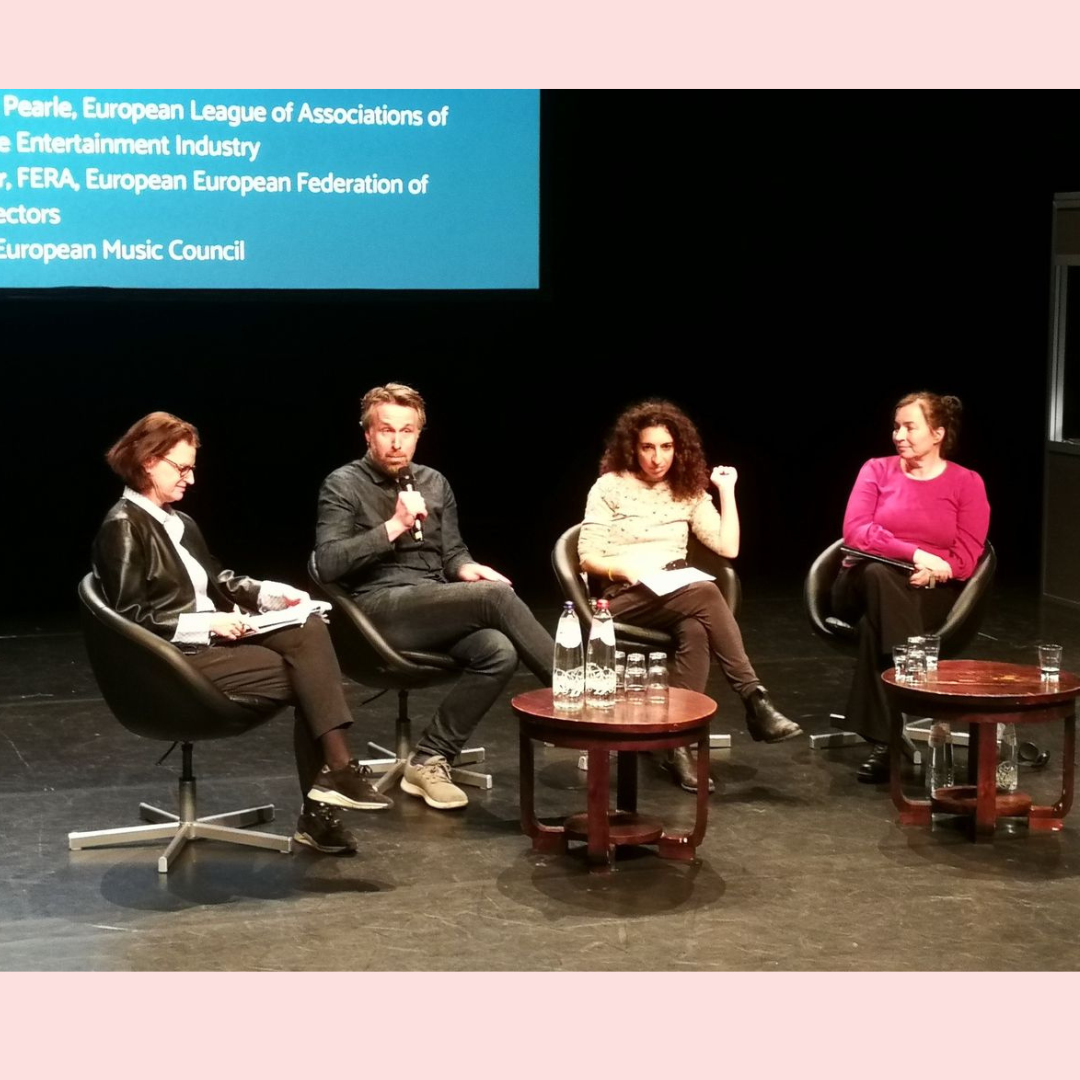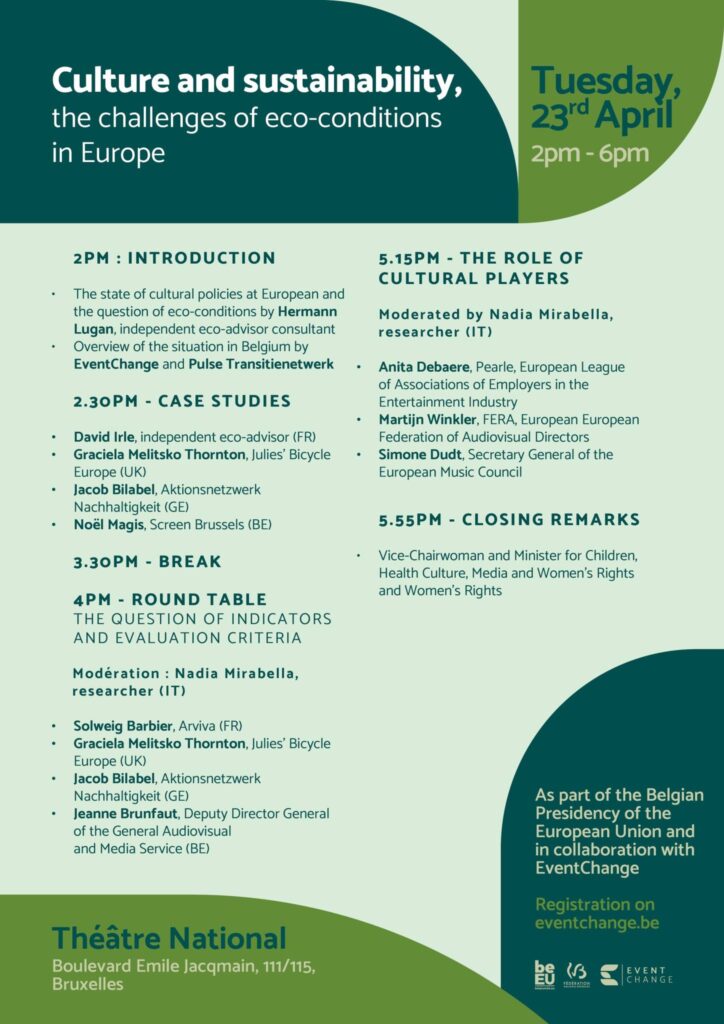
FERA speaks at Belgian Presidency event on Culture & Sustainability

On 23 April 2024, the Belgian presidency of the Council of the European Union, together with EventChange, a Belgian event organiser focused on eco-citizenship, hosted an event on Culture and Sustainability – the Challenges of Eco-Conditions in Europe at the Théâtre National Wallonie-Bruxelles.
FERA Executive Committee member Martijn Winkler (NL) joined the panel discussion focusing on the role of cultural players to meet and promote new eco-condition requirements in cultural policies.
Independent eco-adviser consultant Hermann Lugan gave an introductory presentation about the European Climate Law 2021 and its meaning for the cultural sector. The law establishes a legally binding obligation for the European Union to achieve full climate neutrality by 2050, mostly through a substantial reduction of greenhouse gas emissions by 55%.
Eco-conditions for the economy as a whole are seen as a key issue of this transition – a discussion that also regards the cultural and audiovisual sector.
In the cultural sector, eco-conditionality is defined as a mechanism linking public funding of cultural structures and event venues to sustainable measures. But while it is seen as an important tool in the fight against climate change, the cultural sector has been hesitant about implementing it, out of concern for fairness and consistency.
During the first session, four case studies from France, the United Kingdom, Germany and Belgium were presented including Graciela Melitsko Thornton’s presentation of the UK association Julie’s Bicycle, a non-profit working closely with arts and culture to take action on the climate crisis, and a presentation by Noël Magis from Screen Brussels of the new ecodynamic label bonus point system of the Brussels-Capital regional film fund. Julie’s Bicycle developped a Sustainable Screen Ressource Hub, a collection of audience engagement projects, with the British Film Institute. The project goes beyond audiovisual production, the hub contains useful resources for training providers, cinemas and film festivals.
Case study presentations were followed by two roundtable discussions moderated by Italian researcher Nadia Mirabella, focusing on “The Question of Indicators and Evaluation Criteria” and “The Role of Cultural Players”.
FERA Executive Committee member Martijn Winkler joined Anita Debaere from Pearle, European League of Associations of Employers in the Entertainment Industry, and Simone Dudt from the European Music Council on the second panel.
While from different cultural industries, the three panellists agreed that limitations such as eco-conditions can actually be a great source of creativity and that artists have to ask themselves what they can bring to the table as cultural industry players.
Martijn Winkler presented FERA’s Action! Manifesto, a set of Dogma 95-inspired guidelines that helps baking sustainability into an audiovisual work from the moment it is developed, instead of waiting until the actual production of a film or TV show. While streamers also have green checklists, using reusable cups and green energy on set is not enough to keep the ecological footprint of a project down. The first proposition of the Action! Manifesto is to find stories within a 100km circle on a map, to keep the production local.
Anita Debaere, who presented Pearle’s Ultimate Cookbook for Cultural Managers, a brochure aiming to give an overview of Green Deal initiatives relevant to the performance sector, underlined that constant rethinking and monitoring practices taken up in other ecosystems are needed. She stressed the need for Digital Product Passports, so artists and producers can see where their equipment comes from.
The roundtable concluded with remarks by Bénédicte Linard, the Vice-Chairwoman and Minister for Children, Health, Culture, Media and Women’s Rights of the Government of the French Community. She highlighted Belgium’s commitment to the issue and that inaction was five times more expensive than action when it comes to climate change.
The Report of the conference can be downloaded here in PDF in English and in French.

